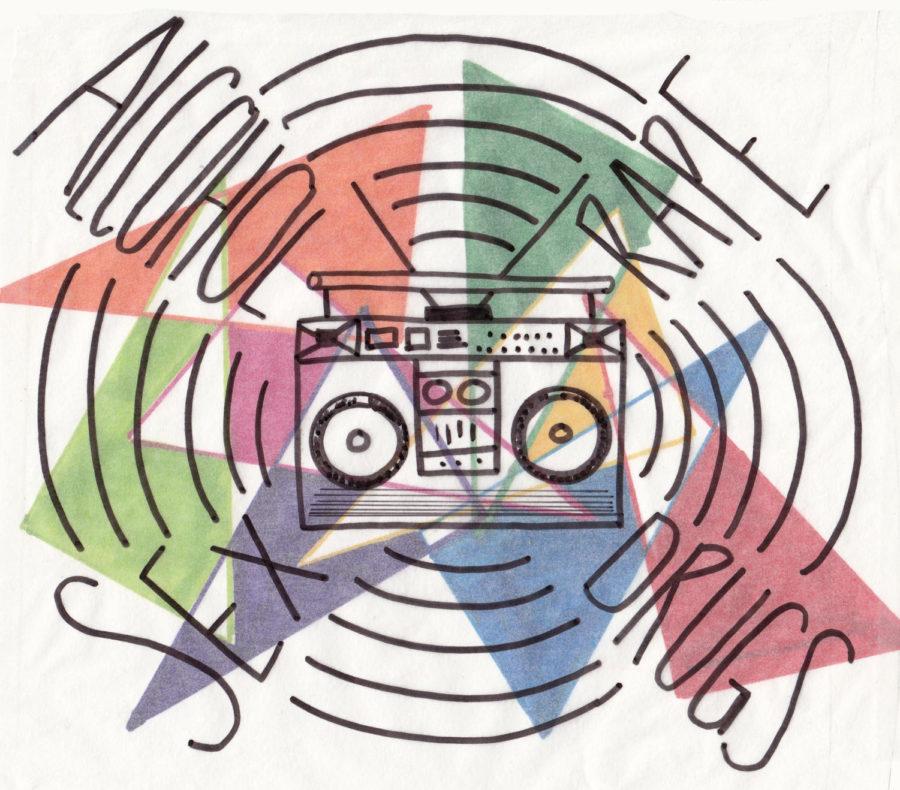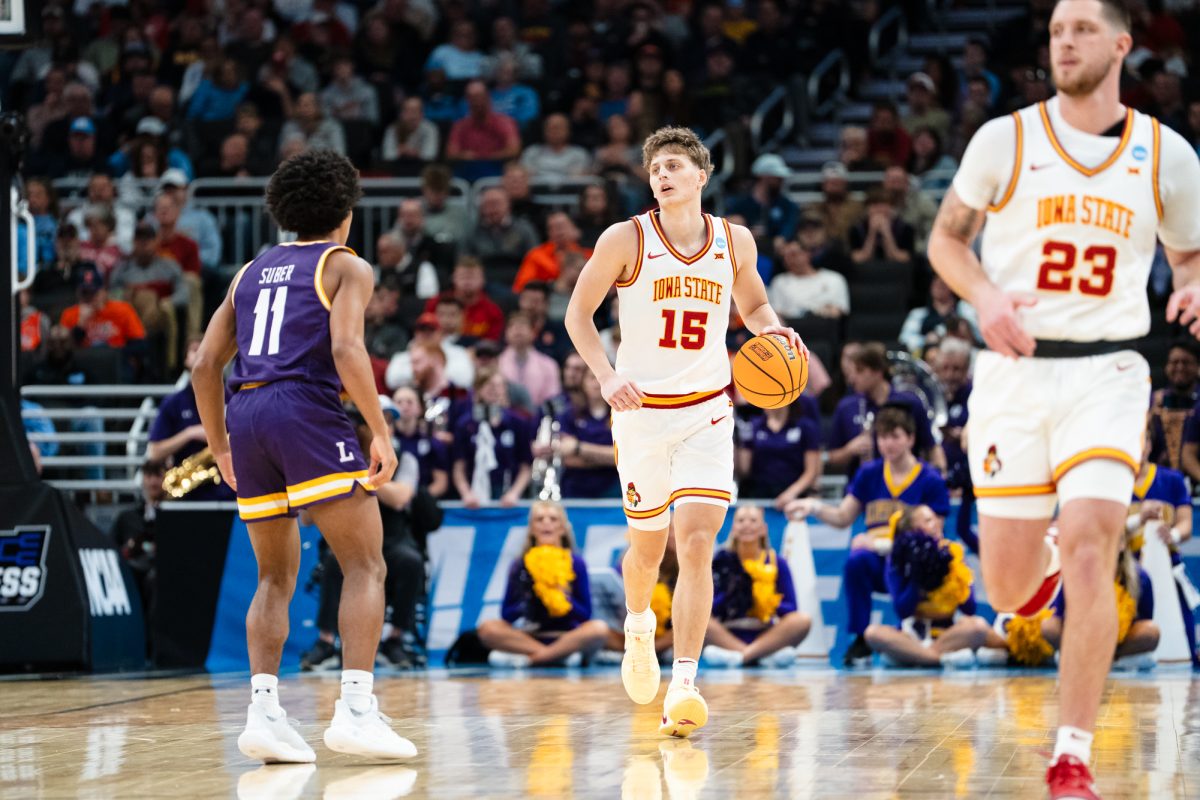Greer: ‘Blurred Lines’? Get your vision checked
Leah Stasieluk/Iowa State Daily
Robin Thicke’s hit single “Blurred Lines” was part of Miley Cyrus’ controversial 2013 Video Music Awards performance, but columnist Sam Greer argues the catchy song with its dark, disturbing message is the real threat to modern morality.
September 27, 2013
The day after the 2013 Video Music Awards, everyone was talking about the antics of Miley Cyrus during her performance of “We Can’t Stop” and the subsequent duet with Robin Thicke of “Blurred Lines.” I found the footage on YouTube and watched sadly as the former Disney star paraded casually around on stage with naught but a flesh-colored PVC bikini and a foam finger.
Miley Cyrus was dismissed as a woman of ill repute, and the chatter about her performance gradually died down, but I was still in shock. Not from the over-the-top, scandalous display though; many ladies in the music industry are unfortunately under the impression that flashing skin will score fans.
I was in more shock from the second song in the set, “Blurred Lines.”
I had heard the song before and didn’t particularly like it, but I had never paid any mind to the lyrics before watching the Video Music Awards. I felt uncomfortable with the presumptuous, aggressive sound of “I know you want it.” How can a guy know a girl wants it if she hasn’t explicitly expressed interest? But my jaw dropped at the words “Nothing like your last guy, he too square for you/He don’t smack that ass and pull your hair like that.”
You’re telling me my man is “square” because he doesn’t hit me or pull my hair? Excuse me if I prefer being treated like a human being rather than a punching bag.
My jaw dropped because the pervasive theme of this song seems to be sexual violence.
The lyrics suggest that there is a gray area between consensual sex and rape, when in reality there are no blurred lines. Some rape victims refrain from telling anyone about the attack because the attacker was someone familiar; because of this, they aren’t sure that the attack was rape. In reality, most sexual assaults are committed by someone the victim knows in some capacity. Even if the victim is in a relationship with the attacker, nonconsensual sexual acts absolutely constitute rape.
“She was asking for it.”
This is said of so many victims of sexual violence, and it makes me sick. No one is ever asking for it, regardless of what one is doing or wearing. A man never knows a woman wants it; under absolutely no circumstances can there be nonverbal communication or conduct that explicitly says: “I want to have sex with you.” There must be straightforward, spoken consent or a sexual advance becomes assault.
Many testimonies from rape survivors involve the rapists telling them they were “asking for it,” as though the victims were to blame for their situation. This can cause the subsequent feelings of humiliation and guilt that tend to accompany sexual assault. Some rape victims cannot determine the true nature of their attack because they are told that they “want it.” Sound familiar?
Perhaps you were as blissfully oblivious of the message as I was: I was unaware of the song’s meaning because I couldn’t catch enough of the lyrics. I sincerely hope this is the case.
If this isn’t the case, and you listen to this song like it’s just another superficial party anthem intended for nights of flashing lights, pounding bass and number exchanges with attractive, inebriated people, think it through. Ladies, do you really want to be seen dancing to a song that encourages men to physically abuse you? Gentlemen, do you really want to be associated with a message of sexual violence?
This song is insidious; sexual assault and other immoral messages, disguised by music, have crept up on society, like water slowly heating on a stove. Society will steep in those twisted influences, ignorant of the water’s gradual increase in temperature until it is too late.
“Blurred Lines” is the emblematic apex of a gradual decline in society’s sense of morality; it is up to the young adults in society to reverse this moral disintegration. If this song comes on at a dance, speak to the disc jockey. If this song plays on the radio, talk to the station. As the principal consumers of popular music, we have the ability to evoke change with every song we purchase; in the same way, we have the power to turn the tide with every song we boycott.
“Blurred Lines” is boiling water. To discourage the prevalence of sexual violence, it is about time we paid attention to the heat.







